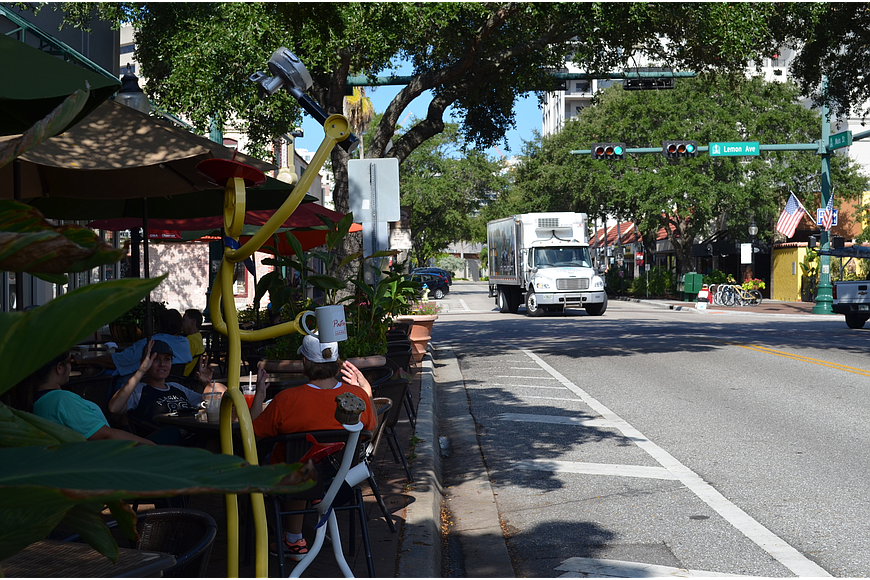- April 23, 2024
-
-
Loading

Loading

Sarasota officials have set new rules dictating how large commercial trucks should be traveling throughout the city, hoping to reroute the vehicles away from residential neighborhoods.
Although the city has agreed to adopt the regulations, they don’t plan on enforcing them — for now, anyway.
That arrangement was brokered during a March 5 City Commission meeting. Although staff has been working with a consultant to develop truck route guidelines since last fall, the commission was reluctant to fully implement regulations restricting most truck travel to major roadways.
The conversation started, staff said, because residents throughout the city had expressed concern about large trucks traveling through their neighborhoods.
Although the city already has regulations restricting through-truck traffic on certain streets, officials said it’s been hard to enforce. As a result, staff developed what it thought was a simpler solution. Instead of barring trucks from a few neighborhood streets, the plan was to limit trucks to a few major streets — such as Fruitville Road or Tamiami Trail.
Truck drivers would still be able to use the residential streets that were necessary to reach a destination. The goal, though, was to ensure most of the travel time was spent outside of neighborhoods.
When the commission discussed the issue in November, the board feared the new truck routes — and any fines for people who violate them — would be unenforceable. At the March 5 meeting, Assistant City Attorney John Shamsey said city police officers would be within their rights to stop trucks when it had a reasonable suspicion the driver was not supposed to be using a residential street.
“I think this really wouldn’t be any different for them than any other kind of traffic stop,” Shamsey said.
Despite the advice of legal counsel, the commission remained skeptical that the city would be able to actually institute hard-and-fast rules outlining where trucks can and can’t be. Mayor Shelli Freeland Eddie worried police officers wouldn’t have an accurate sense of who was in a neighborhood improperly, versus drivers who had a reason to use a residential street.
And Commissioner Hagen Brody questioned whether there was actually a legitimate problem associated with trucks driving down neighborhood streets.
“Trucks don’t want to go down your streets,” Brody said. “They’re doing that because they have a purpose there.”
Deputy City Manager Marlon Brown cautioned the commission that staff has legitimately heard complaints about trucks from residents citywide.
“If nothing is done this evening, tomorrow, my phone is going to be ringing off the hook,” Brown said March 5.
The board ultimately settled on a compromise: Adopting the truck routes as an informal guideline, hoping to educate drivers without punishing them if they don’t adhere to the new system. The commission suggested it could revisit the decision if problems persist.